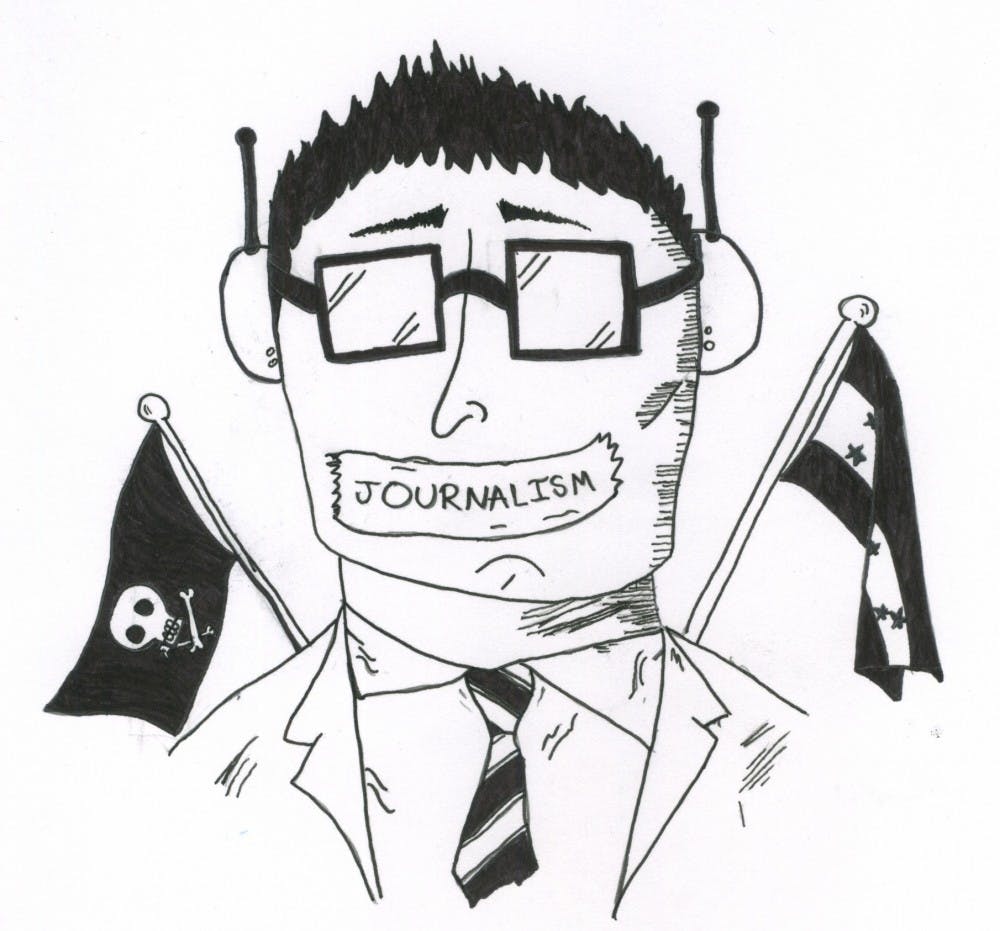I have been able to see a new face of journalism in my days at The State News, a face that wants to rebel against the stigma of censorship. I came to realize this was never an option at media outlets in my home country, Honduras.
For many years, Latin American journalism has been subjected to several barriers, including privatization, censorship and influence from the drug world.
During my life, I have been able to compare two styles of journalism, Latin American journalism and North American journalism. I have been able to see a system of journalism in North America that my fellow journalists in Honduras could only dream of.
Through working at The State News, I’ve been exposed to a set of ideals that has been long lost in my country, ideals that rise upon the desire to make the people aware that yes, the world still is turning.
My country’s government has made it a mission to censor the main journals in Honduras in an effort to provide a blind insight into the events that make my country one of the most dangerous in the world.
Making a formal comparison of North American and Latin American journalism is way too vast to divulge in a couple of sentences, but these media outlets of information are on opposite poles.
While writing articles for The State News, I was often told to be careful of “fatals.” A “fatal” error in the State News means a serious error, such as misspelling someone’s name or messing up his title. This was when I finally realized I was no longer working for a Latin American journal. You see, for a Latin American journal, having mistakes like that is so common journalists often do not give it a second thought.
I have met a couple of journalists in Honduras who completely make up people and quotes. In fact, one could say the Honduran newsroom is filled with a set of pathological liars for the benefit of having a “good story.”
I realized the biggest perk my colleagues in East Lansing have is that they include all of the facts in a story, without being afraid of being censored or punished for sharing too much.
During my work in the Latin American journal, I was able to witness how my former boss would tell my fellow work mates to take out certain information from their articles, because it would upset “X” person, with the case being that “X” person was either a friend of my boss or a very dangerous figure. Fear roamed the offices of the Honduran Journal; we were not sure what information we could put in our articles without getting yelled at by our boss. Not only was he preoccupied with pleasing the right people with every story, he oftentimes made passive aggressive comments and did not have the same standards we do about drinking on the job.
The State News has provided a healthy and professional work environment that sadly cannot be found at the journal where I worked in Honduras. My former journal had doomed itself to a very bohemian workspace with countless and “unnoticed” incidents of sexual harassment, a series of alcoholic beverages being passed around from colleague to colleague, not to mention writers snorting down the occasional line of cocaine in the parking lot.
U.S. journalists should not take for granted the perks of having such a liberal press law system. The reassurance that freedom of press provides for me is unquestionable. U.S. newspapers have the ability to embrace professionalism in a way that I hope my country’s journals can someday. But until that day arrives, I can only hope Honduras does not have to restrict itself to petty journalism and rise above it. Journalists in Honduras need to remind themselves that they are not supposed to self-censor, but rise above those barriers, to remind themselves that they cannot be victims of their own silence anymore.
Rafael López Aguilar is a State News guest reporter. Reach him at lopezagu@msu.edu.







